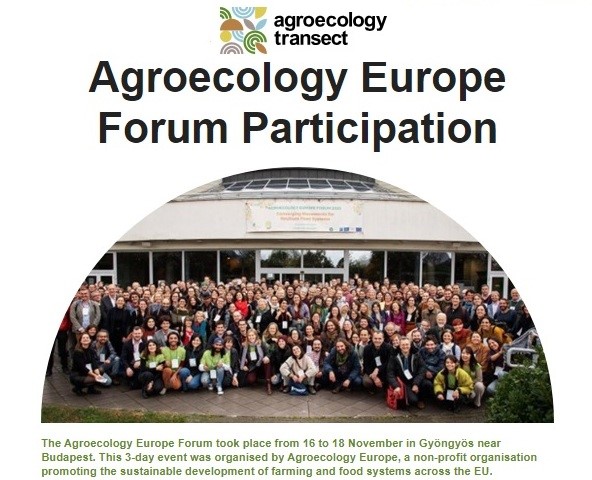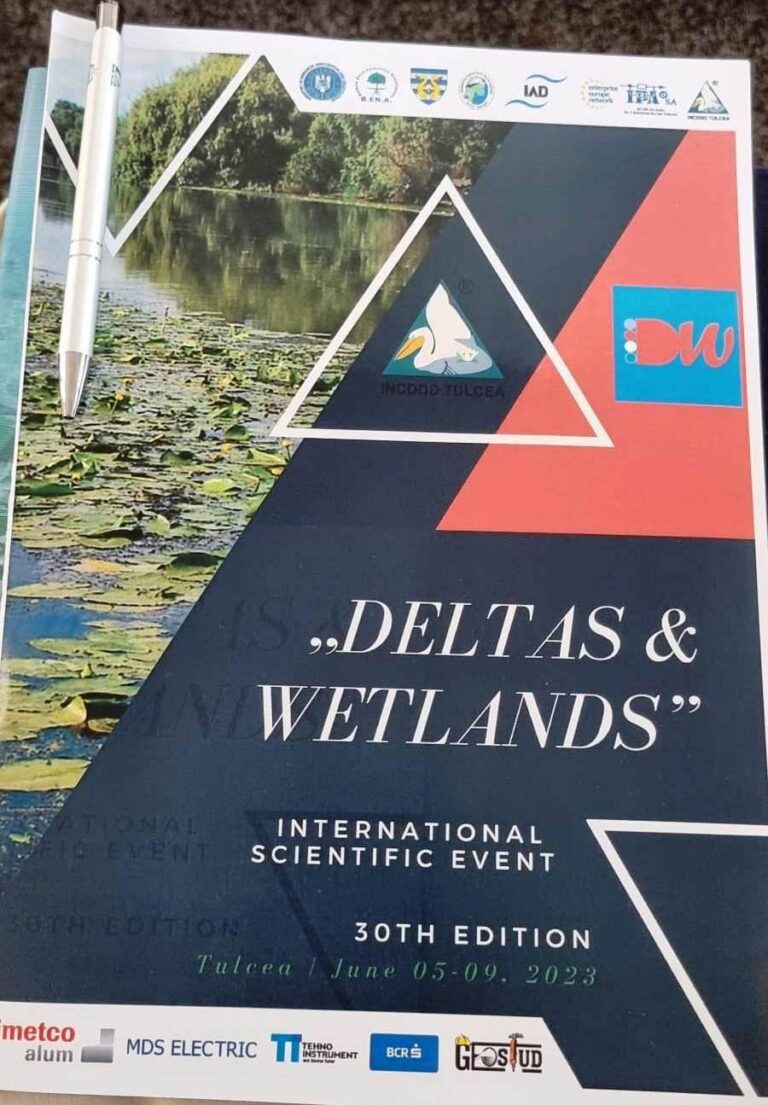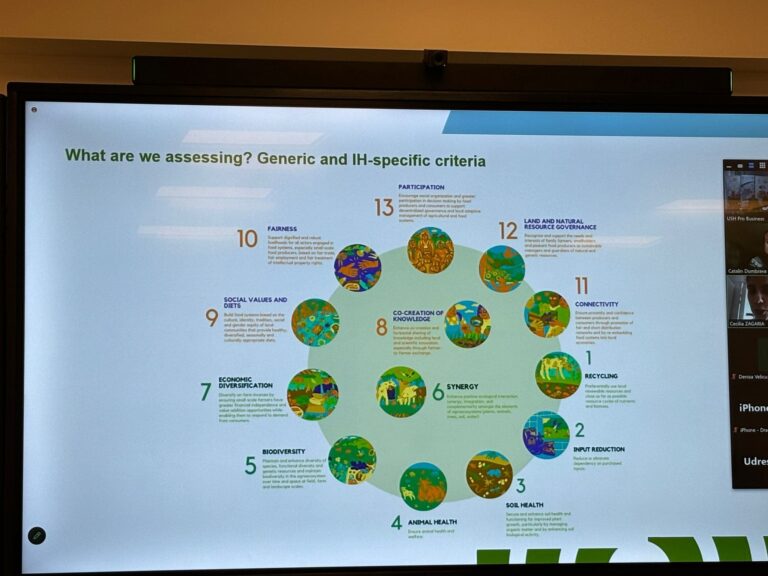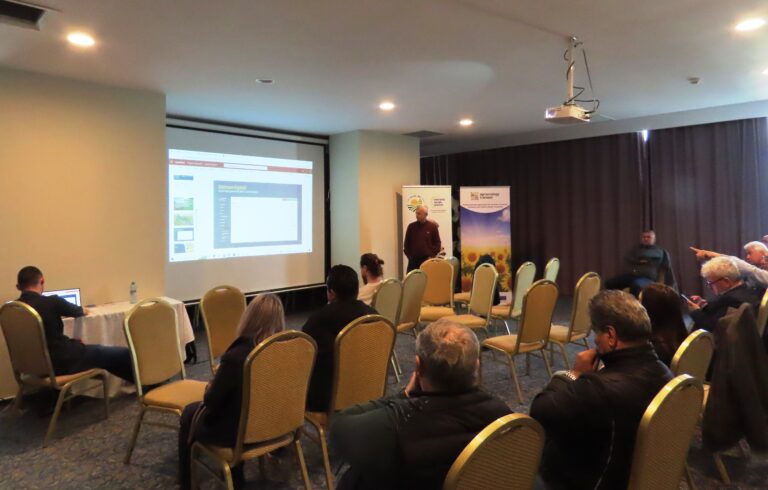The Agroecology Europe Forum took place from 16 to 18 November in Gyöngyös near Budapest. This 3-day event was organised by Agroecology Europe, a non-profit organisation promoting the sustainable development of farming and food systems across the EU.
A diverse range of farming and policy voices
The event brought together 300 people from 36 countries (both inside and outside Europe) for dynamic and interactive conversations about key European policy issues.
By bringing together a variety of stakeholders, including representatives from 37 NGOs and 35 farmers from various movements and territories, the event created synergies that set an exemplary model for growing the agroecological transition in Europe and beyond.
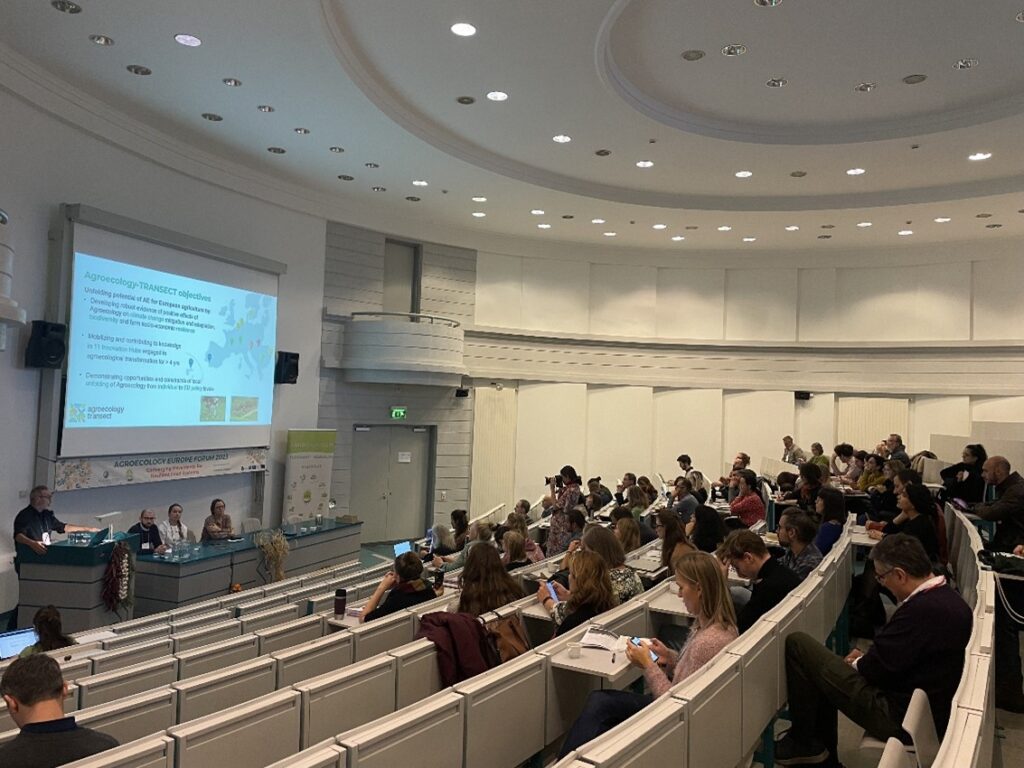
Agroecology-TRANSECT workshops share project news
The meeting provided an opportunity for a team from the Agroecology-TRANSECT project to share their work and connect to the broader Agroecology movement at European scale.
In the session on the role of networks in scaling out agroecology, Raquel Luján Soto (CSIC, Spain) presented first results of the work identifying those involved in the agroecology movement in Europe. Focusing on their narratives, her presentation, Discourses of key European actors of civil society involved in agroecology, looked at the different frameworks and definitions of agroecology, addressing the opportunities and risks of relying on the different frameworks (Nyéléni Declaration, High Level panel of Expert of the FAO), and definition for Agroecology as a Social Movement.
A second workshop took the project as a departure point to discuss novel ways of pulling together knowledge from both scientific and farmer-led communities. Participants came from around the consortium, including Adrien Swartebroeckx (CRA-W, Belgium), Darleen van Dam and Walter Rossing (WUR, Netherlands), Bertrand Dumont (INRAE, France), Alexandra Waldmann (Čarna, Slovenia), Raquel Luján Soto (CSIC, Spain) and Csillag Bittermann (ÖMKi, Hungary).
In particular, this workshop addressed the question of how to organise innovation-oriented research projects as interventions in complex socio-technical change processes.
Four appetiser presentations regarding the project objectives, our co-innovation approach, the Slovenian Innovation Hub learning history, and an example of mapping methodology set the scene for the workshop.
Then, our World Cafe activity invited exchanges between participants, to mix ideas from different discussions.
Three main topics were discussed:
1. Why engage in a multi-actor project?
2. What is needed to produce actionable knowledge?
3. How to feed the agroecology movement?
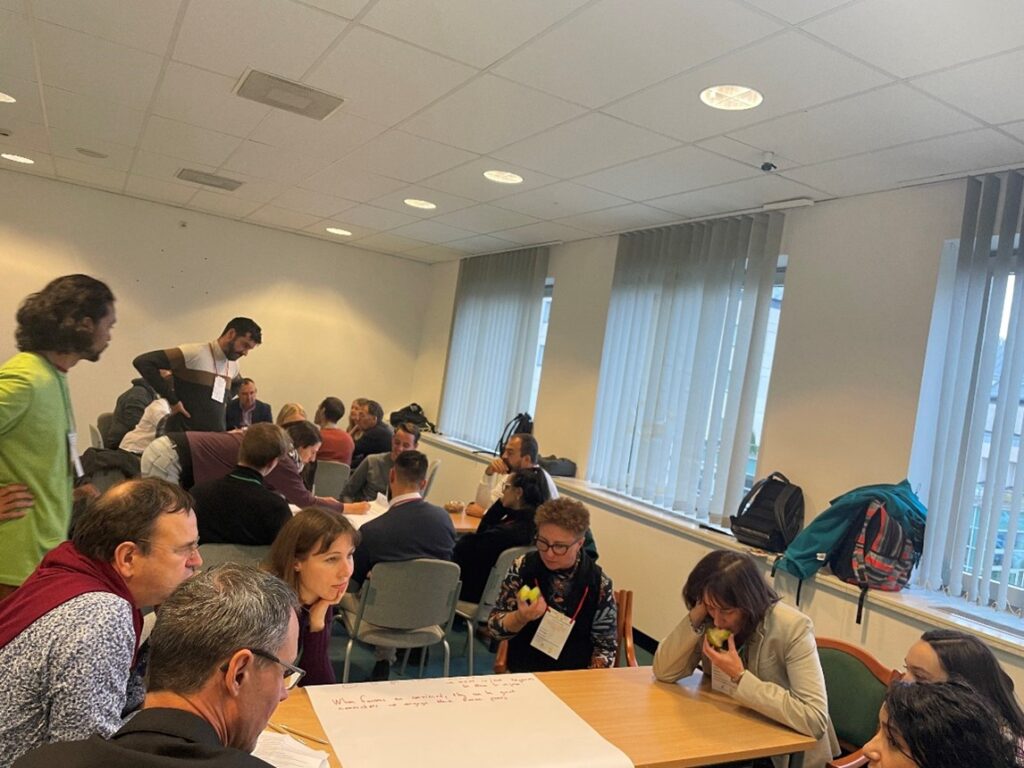
The World Café – mixing up experiences and perspectives
The discussion tables gave way to a wide range of interesting exchanges.
Why engage in a multi-actor project?
Participants agreed on the benefits of having different perspectives. They emphasised the importance of driving change by bringing together people with a wide range of experience, knowledge and skills. The discussion also highlighted a critical gap in transdisciplinary education and research, suggesting that collaborative efforts between different disciplines are essential for addressing the complex challenges facing agriculture.
The group also discussed how to get and retain farmer engagement over a long period of time, highlighting how important it is to show them the benefits of having their voices and issues heard by researchers, decision-makers and the dominant players in the agricultural sector.
What is needed to produce actionable knowledge?
This relies on key preconditions: trust and respect among collaborators, understanding historical contexts, and addressing funding gaps for this type of knowledge.
While scientists are mostly rewarded by showing results in papers, there is less academic reward for the engagement with practitioners, which makes it difficult to concentrate on the needs of the practitioners and citizens. Participants pointed out the importance of thinking together with farmers, and engaging in, for example, field-level demonstrations, peer-to-peer exchange and Living Labs.
How to feed the agroecology movement
Discussion once more focussed on the link between research and farmers, favouring a ‘bottom-up’ approach as key to feeding the agroecology movement. Participants advocated on-field exchanges, adopting a cross-sector approach with bottom-up stories and understanding diverse perspectives with methodologies such as “walk in my shoes”.
One challenge that emerged was the legacy issue, how to feed the movement and be sure that it impacts the future.
Bringing together farmers and researchers is key to the success of agroecology
The fruitful discussions brought to the table some challenges and issues to be addressed when it comes to connecting researchers and practitioners. But they also provided their share of possible solutions and proposals for the next steps. And even if the agroecological transition still has a long path to walk, we already put in our agenda the next Agroecology Europe Forum to be held in Malmö in October 2025 as one of the next steps.

